Catholic Journey Update!
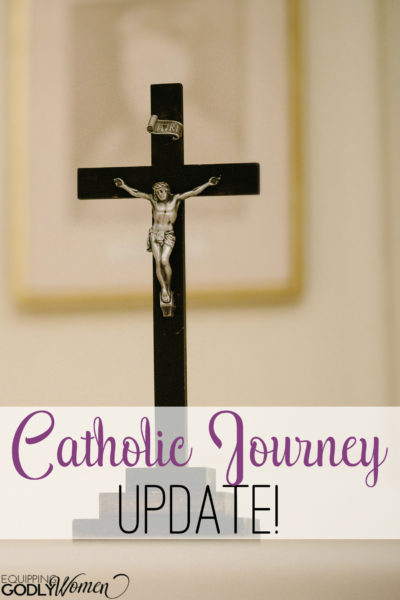 It’s hard to believe it’s been almost THREE years now since I first starting sharing my journey through Protestant and Catholic Belief with you!
It’s hard to believe it’s been almost THREE years now since I first starting sharing my journey through Protestant and Catholic Belief with you!
At the time, I was just beginning to realize how much of the religion I was taught as a child was wrong, and I was just beginning to look into the claims of the Catholic Church to see how much merit they held, if any.
I did a LOT of research during this time, and I learned a TON.
And over the course of a few months, you journeyed with me as I really dove into Scripture to see what the Bible REALLY had to say about issues such as whether or not faith alone is enough, whether the church or the Bible has the ultimate authority and whether we should be baptized as infants or adults.
Not only did these posts really help me think through some very important issues, but I’ve heard from several of you that they’ve really helped you too!
In fact, my post on 10 Common Catholic Church Myths that Critics Believe is STILL one of the most highly trafficked posts on this site, and it continues to bring in new readers all the time!
Well, now that it’s been almost three years since I wrote the last article in the series, I thought it was high time that I give everyone who is curious an update — especially since so many of you have been emailing me asking for one.
Hopefully this post will answer your questions!
Did I End Up Converting to Catholicism? (And why not?)
No, I never ended up converting.
I went through almost all of RCIA* until the week when they wanted me to stand up in front of God and the entire church and say that I believe that 100% of everything the Catholic Church teaches is 100% correct.
And well… I can’t say that.
*Note: For those of you who are unfamiliar, RCIA stands for “Rite of Christian Initiation of Adults” — It’s a class taught by Catholic churches for anyone interested in Catholicism or considering converting.
I do believe that there is a “100% Truth” out there, but in order for me to be able to determine if the Catholic Church is 100% correct, I’d have to know what that 100% Truth is AND every single thing the Catholic Church teaches so that I can compare the two and see if they match up.
And seeing as how I’m not God… how could I possibly know for 100% sure what that 100% Truth is?
Honestly, it would feel pretty arrogant for me to say “I know the 100% Truth” — as if I were soo smart and could somehow figure it all out.
There are some seriously, seriously SMART Catholics, Protestants (and even Atheists!) out there who all debate and still can’t figure things out. They all have great arguments, and still land on every different side of the debate. If they can’t figure it out, how could I possibly?
And I know, I know. This is where my Catholic husband and the priest tell me “Well, you have to have faith.” And they’re right. We’ll never know for sure and there does need to be some measure of faith. BUT — I just don’t have that kind of faith in the Catholic Church (or any particular church, for that matter).
So… that’s where I’m stuck with that.
There’s nothing in particular that I really object to (though there are several things that aren’t my personal preference). I’m just not convinced.
I do continue to pray and plan to do much more research though – especially into the early church fathers – so who knows… maybe there’s still hope for me yet 🙂
So… How Does That Work? If You and Your Husband Believe Different Things?
Well, what you have to understand is that despite my husband and I having different “labels” (he’s Catholic, I’m not) 98% of what we believe and the way we practice our faith is the same, and the parts that are different really don’t make a huge difference in day-to-day life.
We both pray, read our Bibles and attend church regularly. We both seek to live God-honoring lives and pretty much agree on what that looks like. We both care a great deal about raising our children in the faith.
And for the things we differ on, we tend to be pretty accepting of each other’s beliefs. We find ways to make it work and to incorporate the best of both worlds.
For example:
- We go to Catholic Mass on Sundays. He tried my church for a while. Now we regularly attend his. It isn’t my first choice personally, but his church is important to him and going to church together is important to me.
- Our kids go to a Protestant preschool and a Catholic elementary school. They’ve also attended Protestant Sunday School and Catholic Vacation Bible School. Not to keep things 50/50, but because we both felt those were the best schools/programs for our children in our area.
- Our kids learn both Catholic and Protestant songs and prayers – just depending on whoever happens to be singing or praying with them at the time. I may not care to pray the rosary personally, but will it harm my children if they learn it? Hardly.
I’m totally supportive of my husband going to confession, praying the rosary or wanting to display a cross in our home – even though those aren’t the ways I typically worship. And he’s totally fine with me reading Protestant books, listening to Protestant music and teaching our kids all the songs and Bible stories I grew up learning.
My husband and I aren’t two enemies competing to get our own way. We’re two Christian adults each trying to grow in faith personally and do what’s best for our families as a whole. And when we disagree, we find a way to work together to find a solution we can all agree with.
What Advice Do You Have for Couples Who…?
Of course, this is just what has worked best for MY marriage. Your marriage might need something different.
If you and your spouse are also trying to navigate a marriage in which you believe two different things (or one or both of you is considering changing beliefs), you might find one of these articles helpful instead:
What to Do When You And Your Husband Have Differing Beliefs (For differing denominations)
Unequally Yoked Marriage? What to Do When Your Spouse Isn’t a Believer
So hopefully that answers some of your questions…
Still have more questions for me about my journey or how my husband and I make it work? Leave them in the comment section below!


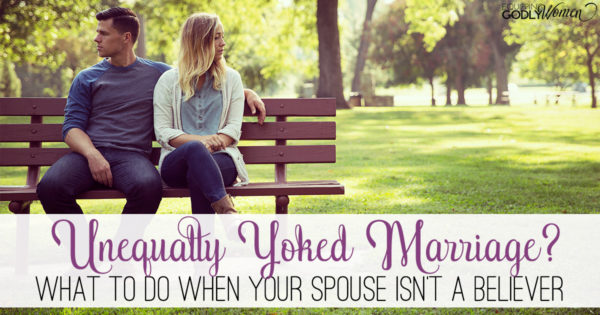
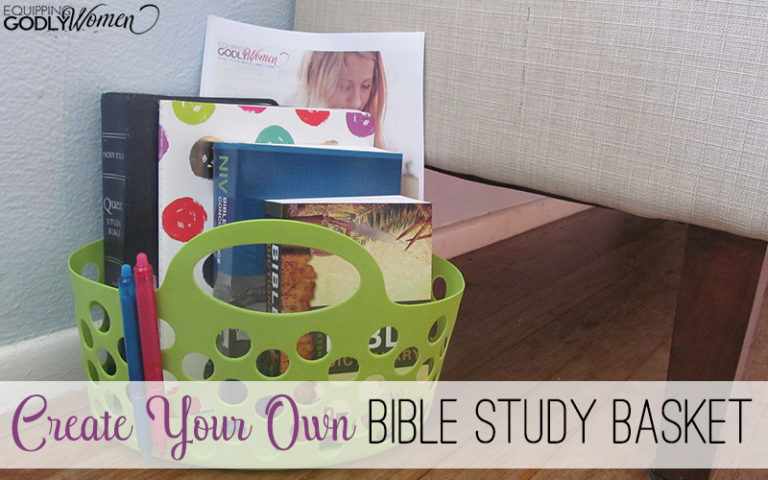
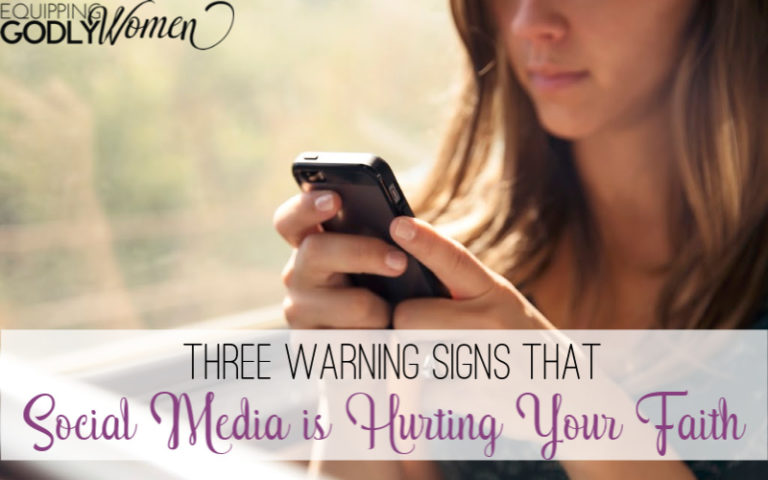



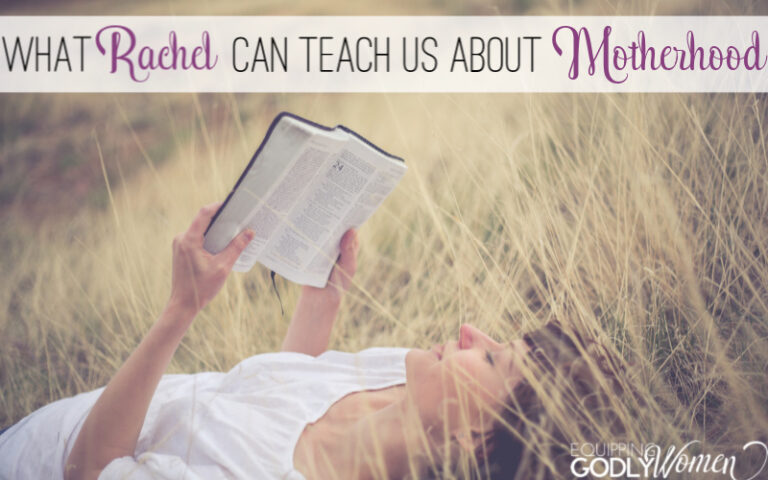
God Bless you on your journey Brittany. Never loose your focus on Jesus Christ. Let Him be the cornerstone of your faith. Put your faith and trust in Him. Don’t let any denomination blur this truth. Listen to the Lord when he warns us in Matthew 7: 21-23. What is the will of the Father? Look to John 6:40.
Britany, be careful about statements such as “protestants throw out works.” We are saved by faith alone, but this faith creates a change in us that produces loving fruit. This loving fruit is how we know that we have the right faith, the trusting faith in Jesus Christ our Lord.
John Piper describes this nicely : https://www.desiringgod.org/messages/does-james-contradict-paul
“To put it yet another way: When Paul teaches in Romans 4:5 that we are justified by faith alone, he means that the only thing that unites us to Christ for righteousness is dependence on Christ. When James says in James 2:24 that we are not justified by faith alone he means that the faith which justifies does not remain alone. ”
“These two positions are not contradictory. Faith alone unites us to Christ for righteousness, and the faith that unites us to Christ for righteousness does not remain alone. It bears the fruit of love. It must do so or it is dead, demon, useless faith and does not justify.”
Check this out. This comes from Martin Luther: “An Introduction to St. Paul’s Letter to the Romans,” Luther’s German Bible of 1522 by Martin Luther, 1483-1546. Link: http://www.ligonier.org/learn/articles/martin-luthers-definition-faith/
A brief summary: “Instead, faith is God’s work in us, that changes us and gives new birth from God. (John 1:13). It kills the Old Adam and makes us completely different people. It changes our hearts, our spirits, our thoughts and all our powers. It brings the Holy Spirit with it. Yes, it is a living, creative, active and powerful thing, this faith. Faith cannot help doing good works constantly. It doesn’t stop to ask if good works ought to be done, but before anyone asks, it already has done them and continues to do them without ceasing. Anyone who does not do good works in this manner is an unbeliever.”
“Thus, it is just as impossible to separate faith and works as it is to separate heat and light from fire! Therefore, watch out for your own false ideas and guard against good-for-nothing gossips, who think they’re smart enough to define faith and works, but really are the greatest of fools. Ask God to work faith in you, or you will remain forever without faith, no matter what you wish, say or can do.”
May God continue to bless you and your family. This comes from a fellow christian who has been taking his family on the road to follow Christ and has been to many denominations including Roman Catholicism.
Hello Brittany,
I was wondering how you felt about not being able to partake in the Eucharist since you have not converted to catholicism. Is it hard attending mass with your family and not being able to model this part that the Church regards so highly for your children?
I have been dating a catholic and have grown up protestant. I am very fascinated with the Catholic Church, but I also have reservations based on how I was raised. I have been considering marriage and would ultimately see that leading to attending mass. I was just curious as to how you felt about it.
It honestly doesn’t bother me. I understand (and even agree with) their reasoning. If it really IS the real body and blood of Jesus (and I believe it is), then it only makes sense that they would want to handle it with utmost care and respect, which includes not giving it to those who don’t even believe in it.
And my kids haven’t even noticed (and likely won’t for a long time). I can still walk up with them and get a blessing. And if they go first and I go last, they don’t see me anyways. Not that I’m being sneaky and purposely hiding it, but since our kids are still really little, we haven’t gotten into that whole debate with them yet.
Hi Brittany! Forgive me for adding my two cents; I don’t want you to feel like people are ganging up on you! 🙂 You are on your journey with your husband and with God and that is something you do alone. But as a convert, it’s difficult not to add my own experience!
I was raised devoutly Lutheran, became an atheist as a teenager, and then finally converted to Catholicism as an adult. When I read your update, what jumped out at me was what other converts sometimes call “the Protestant mindset.” This mindset is that “I am the arbiter of all truth” — we are raised to believe that each one of us has the right and the duty to research every one of our beliefs to ensure that they are correct and that the church or denomination we are with is the correct one, and that the Bible, prayer, and our reason are all that we need to accomplish this. Implicit in this mindset is the belief that the Holy Spirit will guide us in this quest and preserve us from error. But we can look around and see that this is not the case for individuals.
For instance, when we see this mindset at work in others, its flaws are clear. When some guy in Duluth says that he has looked into all the various denominations, and that some are almost correct, but none is exactly correct according to his own research, so he has prayerfully discerned that he must start his own church (which properly teaches that hell is a metaphor or whatever), it’s really obvious to the rest of us that he is in error. And if you look back to Arius, he was an ordained priest who was convinced he was correct about Jesus not being equally divine, and he got 95% of priests on board with his views at one time. But the church never taught that, and instead the doctrine of the Trinity won the day.
So what is the alternative? Of course we must use our reason! But after we have evaluated the claims of the Catholic Church and its tenets and our objections about saints and Mary etc are answered, I think the hardest work is on the issue of pride and authority: Will I be catholic because I know the truth and it teaches it? Or because it is the church that Jesus has said he will preserve and has preserved from doctrinal error, a claim he never made to me or to any individual? Martin Luther truly believed that if we all looked at the Bible and prayed on it, we would all come to the same views as he did. And within only a few years he was proven wrong, and people came to all kinds of contradictory views. Now we have 30,000+ denominations.
For me, I look at all those terrible popes, the really bad ones, and I notice that even the worst ones (with power and money to do anything) never put forward any papal bulls about how popes were special so they should get 20 virgin concubines or anything, they never decreed their behavior to be licit, as many rulers through the centuries have. I look at the issue of birth control, which every Christian for 1900 years agreed about, until it became much more conveniently produced, and then all denominations fell one by one except the Church. And even then, in the 60s, the bishops pressed the pope to allow it. And he instead wrote Humanae Vitae, and its famous prophecies have all come true. When people sever the link between pleasure and consequences, it is as unhealthy as bulimia, when a person wants the pleasure of tasting the cake and then vomits to avoid the calories.
But that’s its own topic. My point is only that there are many instances, like these, where the Church faced enormous pressure from within and without to change her doctrines and fall into the errors of the day and mirror the modern world’s views, and she has still been preserved in her teachings. Yes, there are lots of other denominations (as many as there are issues to disagree about), but only the Church has been preserved. Even if you aren’t sure about the contraceptive issue, you can see what has happened in the last 50 years. You can see why more and more evangelicals active in the pro-life movement are turning away from birth control and toward embracing children and a different plan for our marriage and family life than the modern world’s view. And there was the church, the only voice among all christians that had been saying this message when it was most unpopular.
Anyway, when you give up the Protestant mindset, it is really very freeing. You realize that there are still perhaps dozens of issues you aren’t qualified to research properly (because maybe you don’t read Greek or Hebrew), and that there are likely many more ethical and moral issues still to arise in your lifetime — but you know the Holy Spirit will protect and preserve the church in a way that God has never done and has never promised to do for any individual. Her track record is much better than mine. And God’s hands are much more capable than mine. And that’s scary but also freeing.
So anyway; sorry this is so long! God bless you on your journey. But don’t get too comfortable with just the status quo! Maybe ask God to send you, call you, push you wherever it is he wants you to be and go and say and do, and he will.
Emily
Emily hit the nail on the head.
Hi Brittany, I have enjoyed your this series. I have a question for you, I have been in a long term relationship with my boyfriend who is Catholic. I know you go to Catholic mass and do not take the Eucharist, so how do you feel about not having communion? I’m trying to figure this out for myself, but would love your advice.
Personally, it doesn’t bother me because I understand. I don’t mind missing out on Protestant communion — since it’s just a symbol anyways. And I totally understand why Catholics would only want to give the Eucharist to people who believe it really IS the body and blood and will treat it appropriately. I know this is something many people struggle with. It just has never bothered me personally.
Were there times people told you not to marry your husband because he was catholic? I have had a couple people tell me I shouldn’t marry my boyfriend because we are not of the same denomination.
For me personally, no. Neither of our families cared, though I have since talked through some of the differences with both of our mothers after we were married.
This article is specifically about dealing with a husband who is a different denomination, but a lot of the advice would apply to dealing with families as well: https://equippinggodlywomen.com/marriage/what-to-do-when-you-and-your-husband-have-differing-beliefs/
I know this is 2 years ago, but I’m curious if anything has changed? My husband was agnostic until his twin recently converted to Catholicism with his wife. I was raised Baptist but went somewhat away from church going, as my husband was never comfortable. He is now exploring his beliefs, which I’m fine with. He’s leaning heavily towards Catholicism, while I don’t agree with everything, it’s fine. My Concern is that he’s trying to say that my belief is wrong and that if I don’t believe as he does that I’m a hypocrite because the man is the spiritual head of the household. I’m all for reaching compromises and your articles are helpful, but I don’t 100% believe what he does.
Oh goodness, that’s annoying. Nothing really has changed here, though we have reached more peace and understanding about our differences. There was a time when he felt along those same lines of “I’m the man; I’m supposed to be the leader,” which is understandable. Eventually, however, he kind of turned me over to God in prayer and let God deal with me lol! That took a lot of the pressure off.
I don’t know your husband personally or what words would be most effective for him, but for me, I’ve always thought “There are a LOT of realllly smart people on both sides. If they can’t figure it out — how can I possibly??” And if your husband was wrong before, how does he know for 100% sure he’s not wrong again? AND — it took him a while to convert. You said he wasn’t Catholic before. So… God calls us all (wherever He calls us) on HIS own timing. You can’t force people to believe anything.
Anyways, not sure if any of that is helpful. I think it helps that I am so open to learning more. And my husband eventually just realized he’s just going to have to be patient and hope for the best. No promises 🙂
Hi Brittany,
I was wondering what you are referencing specifically when you say that you were not ready to say that “100% of what the church teaches is 100% correct.” In what context would you have needed to say that?
Thanks and God Bless!
It’s part of the Rite of Confirmation. According to the person who co-taught my RCIA class: “…This is the ceremony that fully incorporates baptized people into the church. I’d draw your attention to the Profession of Faith that takes place after the Nicene Creed: ‘I believe and profess all that the Holy Catholic Church believes, teaches and proclaims to be revealed by God.'”
In other words, my understanding is that I have to get up in front of God and man and the entire church and say that I believe the Catholic Church is 100% correct in all matters of doctrine. Which… I can’t do until I research more about what their doctrine actually IS and if it is Biblical.
Hi Brittany,
I don't know if your views have changed since you wrote this article or if you have an update but I was wondering where you stand now that your kids have grown and it's been 3-4 years. If you don't mind responding and letting me know if things have changed for you or if they are about the same. I am curious to see if your mindset or views have changed at all since this article.
Hi Brittany,
I feel I am in a similar situation you are in but not as far along… My Fiancé and all his family are Catholic. I was raised Protestant and went to church often, attended bible camps, volunteered in church, and even went to San Diego Christian College for a year.
My Fiancé is very well versed in History and always made certain comments that I had never been taught in school or Church. He has never asked me to convert, and I don't even think he expects it, but you can tell he wanted me to find out some things for myself and have a better understanding as to why I believe what I believe.
To keep this short, I have been trying to do my own research, to find some sort of truth, as you did and many others. The problem is just as you said ("There are some seriously, seriously SMART Catholics, Protestants (and even Atheists!) out there who all debate and still can’t figure things out. They all have great arguments, and still land on every different side of the debate. If they can’t figure it out, how could I possibly?") and there is no set place to go to find the answer we are all looking for, 'What is the one true religion'. Which I don't think anyone on this earth can answer for us.
But the more and more I read your blogs on your journey and where you are now, I just can't help but feel like you are stuck, as I feel. And maybe it's easier not to pick a side than to pick one. But at some point, don't you feel you owe it to yourself and to God to make a choice, whatever that choice may be… From what I read, it seems like you are pretty much Catholic, but just don't agree with certain practices, but maybe that is ok! Being Catholic doesn't mean the Church hasn't made mistakes along the way. How will your children grow up? Will they just choose not to choose like you have? Is that ok, to be Christian without a specific Religion to tie to?
I am not saying what you are doing is wrong, but I just have a hard time with you not knowing yet. You have been doing this a lot longer than I have and you still haven’t’ found what you are looking for. (I know many people study this for a lifetime and still aren’t sure, but at the same time I think most have decided to follow a specific Church and just become more rooted as they learn?) Do you feel like you are hesitant to make the switch because of your parents and disappointing them/what your relationship might be like afterwards?
I know that was a lot to ingest but I just am not sure how to process your lack of deciding. It seems like something is stopping you, but you never say what it really is.
P.S. I am sure you have already heard of him but I have been doing a lot of reading from Kenneth Hensley. He has an incredible story and journey… https://catholicapologeticsacademy.com/faculty/kenneth-hensley/ and he has a lot of good blogs on the Coming Home networks website.
Respectfully,
Brittany 😊
I don’t know if I need to “pick a side” or not… In one sense, it’s just a label. But then, if I felt strongly convinced one way or the other, I have no problem having a label (it would make it easier in some ways!) For now, we are raising our kids Catholic, and I’m fine with that. But I’m still at the point where I’m just not convinced the Catholic Church is 100% right in everything – yet they expect me to be 100% certain to convert. So that’s where I’m stuck. But I’m still researching and learning more every year!
Hi Brittany-Ann,
In regards to your last comment, as a convert to Catholicism myself I think you are close. The Catholic Church doesn't expect you to be 100% certain to convert, they expect you to trust them with belief that they believe, teach and proclaim is revealed by God.
Here's the difference:
"I don't know if the Church is right or not on this, so I can't commit to becoming a Catholic until I do." (100% certain)
"I'm not sure how they reached this answer, but I trust that God has guided them to it." (belief that what they believe, teach and proclaim is revealed by God).
I've found that it's still natural to have doubts and uncertainties post-conversion, but you eventually reach a point where you either find the answer in time, or you know enough from the prior research on other topics to know that you will be able to find an answer in time.
As a comparative scenario: I might not know what my wife did with 100% of every day of her life prior to meeting her, but I believe that when she tells me what she did that she is speaking the truth.
Hope this helps. God bless and may the Lord and the Blessed Mother guide you in your steps.
Unfortunately, I’ve double-checked with our local church, and this is the exact phrase I would need to say/agree to: “I believe and profess all that the Holy Catholic Church believes, teaches and proclaims to be revealed by God.” I believe the Catholic church is right about a lot of things, but all?
I do absolutely have the kind of faith you describe in my relationship with God. If I don’t know, I trust that He has a good reason, even if I don’t know what it is. But I can’t say I have that same faith in the Catholic Church. (We’re human. EVERY denomination is going to get it wrong at some point.)
Hi Brittany Ann, Thanks for all the info and insights.
A friend did RCIA like you and actually was confirmed in Catholic church. Had misgivings less than a year later and stepped back to Protestantism. Wife was supportive but did not do RCIA.
My Dad never went to church, but never had a problem with our Catholic Mom taking us kids to Catholic church. We all went to Catholic elementary school.
Your post above reminded me how I became calmer with religion. During high school, I was bothered, like you, by not being able to feel 100% sureness about Catholicism. Not like the reassuring certainty in math or chemistry class. Senior year my psychology teacher was (i think) evangelical protestant. In one class something came up about religion. I don't recall what started the discussion. He said one sentence that flipped the light switch on in my tiny brain. I will remember always like yesterday: "another word for religion is…faith". More than the words themselves; the calm, matter of fact, self-assured way he said it has stayed with me. I'm 70 this year. Will retire from medical practice in 3 more years, God willing. Still studying history and theology of Catholic church. Best thing I've done past 5 years is take a couple Catholic bible study classes at my parish. I'm still sinning, still praying, going to mass and confession, still trying to become better, like Jesus. Peace of Christ be with you.
Thank you so much for sharing about your journey! Love that you are diving into learning more about your faith!